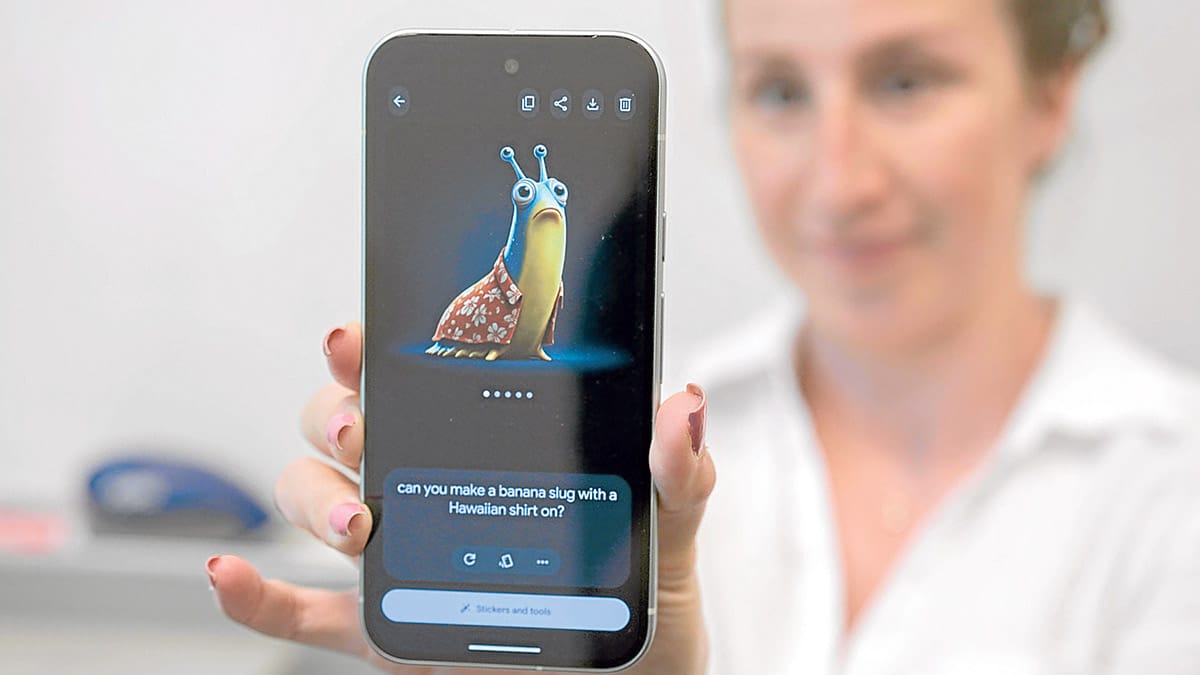Awe, concern as AI comes for smartphones

SANTA CRUZ, UNITED STATES—Matthew Day was keen to find out if an artificial intelligence (AI)-packed Google Pixel 9 smartphone could tell him a great local fishing spot.
California Assemblywoman Gail Pellerin had it whip up a playful picture of her dog in front of the state capitol building.
Igor Gaspar launched into a discussion with the Pixel regarding causes of inflation.
Fascination tinged with concern was a common reaction as people in Santa Cruz dabbled with a Pixel 9 and its capabilities, including the ability to “add” oneself to pictures and having a whip-smart digital assistant at one’s command.
Agence France-Presse (AFP) visited the coastal California city to ask passersby to test out the features on the phone, as Google and Apple increasingly integrate AI into their products, in what they say is becoming a transformative time for the devices central to modern life.
“I asked it a question and it gave me a quick answer,” Day said as he checked out the Pixel 9. “That’s a lot better than the phone I have right now, I’ll tell you that much.”
“[There are] definitely some incredible tools that people would have available to them to do creative things, and gather information,” Pellerin said after putting a Pixel through its paces.
Yet worries also mounted.
“But I’m also concerned about nefarious uses of it, and we need to have those guardrails and regulations so it doesn’t cause havoc in any industries or communities or whatever,” she added.
Pellerin is backing state legislation aimed at thwarting AI being used for misinformation and deepfakes.
Along with her concerns was admiration, though, for benefits of AI features such as an “Add Me” tool that lets people take a photo of family or friends, then add themselves in as though they were part of the group from the outset.
Bells and whistles?
University of California, Santa Cruz, computer science professor Leilani Gilpin questioned the need to put AI in people’s pockets and wondered whether confident sounding smartphone replies will mask moments when the software is “hallucinating”—making up inaccurate information.
“Different language models hallucinate different information,” Gilpin said.
“So, the same thing is going to happen for people using this,” she added. “Whether it’s for trivia or for generating images or other things, there’ll be some made up information, and that’s just a way that the models work.”
Gilpin liked the idea of engaging with AI conversationally while out walking, but felt spoken exchanges lacked a sense of talking with a real person.
“I work on a lot of these technologies, so I feel like it’s a couple of bells and whistles on things I’ve seen before,” Gilpin said.
Seeing powerful AI tools on new smartphones “raises eyebrows” for Gaspar, who said having it packed into iPhones could spoil his taste for Apple products unless he feels in complete control of the technology.
In some ways, companies are already trying to avoid negative fallout from infusing AI into their products.
Google appeared to be taking steps to avoid controversy, with its Gemini AI powered digital assistant on the Pixel declining to talk about elections or politics, and the image generation tool telling users it would not depict real people. —AFP